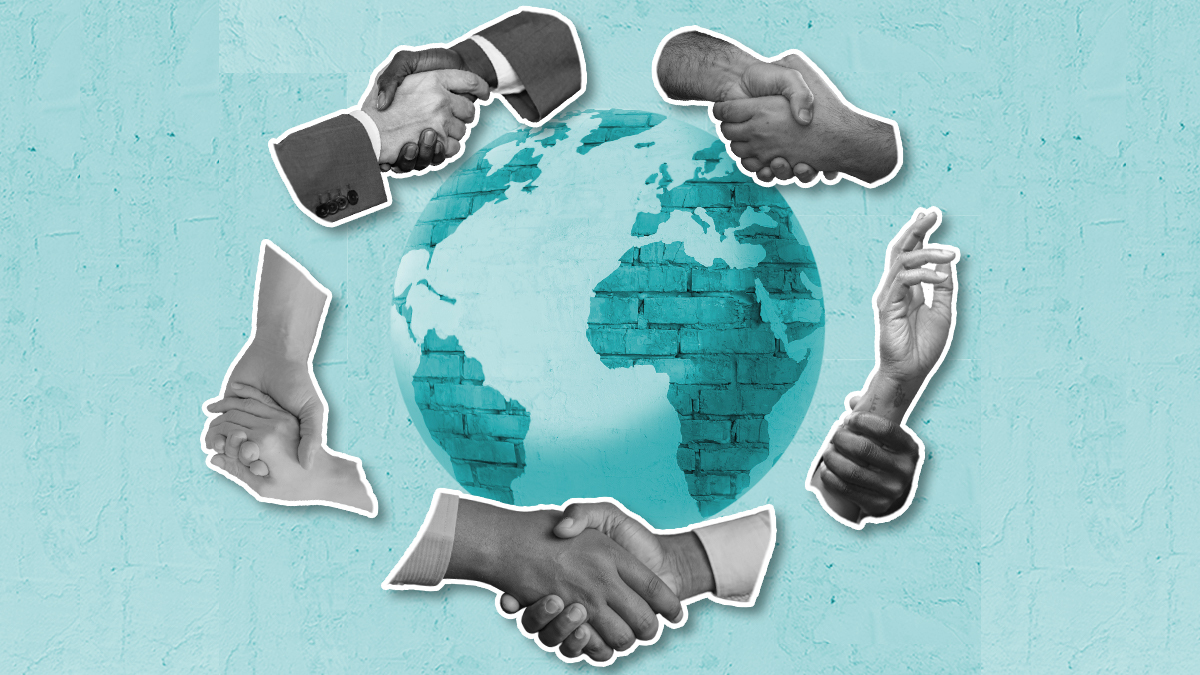In-depth conversation: Are the SDGs relevant anymore? Devex editor Raj Kumar weighs in
Why It Matters
Global inequality is at a high — vaccine inequity is a salient example. As the Global North begins to recover, much of the Global South is still grappling with the pandemic’s social, health, and economic devastation. How NGOs, agencies, and governments engage in global development will be crucial for global recovery.

Raj Kumar published a book about global aid — The Business of Changing the World: How Billionaires, Tech Disrupters, and Social Entrepreneurs Are Transforming the Global Aid Industry — just before a global pandemic changed the way aid is done and the way the world thinks about aid.
Kumar is also the founding president and editor in chief of Devex, a digital publication that covers humanitarian and international development work globally, which means he’s had a front-row seat to these massive changes — and the ways global inequality has heightened in devastating ways since the pandemic began, too.
What’s next after the SDGs? How has global aid changed since the pandemic began? And — does aid even work? Future of Good CEO and Publisher Vinod Rajasekaran sat down with Kumar to dive in.
The following conversation has been edited for length and clarity.
Vinod Rajasekaran: You published your book in 2019. In some places later that year but more broadly in 2020, the global pandemic hit. How would you characterize the ways the global aid system has been affected?
Raj Kumar: To me, the shocking thing is — you would think, maybe, this is the moment. A global pandemic affects every country, at different levels. You’d think this is the moment when the world says, we’ve got this global aid industry, we’ve these NGOs, these aid agencies, these UN agencies — let’s flood them with money, let’s go do what needs to be done. And really, it’s been the opposite. People basically pulled back and said, we’ve got to take care of our own first. Let’s hoard vaccines, let’s use them as a tool of diplomacy, let’s talk about cutting aid budgets because our economy is affected, but we’ll put massive stimulus into our own economy. So in a lot of ways, this idea of global solidarity that underpins so much of the work that people in global development do was exposed for how thin it is.
Vinod: Yes, this pandemic is unprecedented, but there have been other global crises — financial crises, economic crises, natural disasters that have also been these moments in time for the aid agency. How is this different
Raj: I think the scale of this is different. I think the fact that it’s a health crisis is different. It’s impressive to me that we haven’t seen somebody come out and say, we need a brand new, major institution with a very ambitious price tag on it, and we’re going to make sure no country has a health system that’s so weak that it can’t do basic surveillance, or basic treatment, or deliver vaccine — we’re going to step this up.
Vinod: In the book, you talk about how achieving the end of extreme poverty and other global development goals seems unlikely to happen on our current trajectory. That was in 2019. How do you feel about it now?
Raj: Now, we’re much less likely to hit it. The numbers have gotten much worse due to the pandemic. There’s been a massive backsliding — people being pushed into extreme poverty. So by 2030, it’s unlikely that we’ll hit these goals. Something big would have to shift. It’s not impossible. We’ve got unmanned missions to Mars. We’ve got autonomous vehicles. We’ve got the technology. We’ve got the money. This is not a resources or ingenuity problem — this is a systems problem. But it’s a big one.
Vinod: If the SDGs aren’t achievable, what should come next?
Raj: The SDGs are a framework to think about development, and so I guess you could extend the SDGs. You get to 2030 and say, well, these really are the factors that matter to human development so let’s just extend them out. But all you really want is some sense that we’re all in this thing together, that there’s some solidarity, that if you’re a civil society leader, wherever you are in the world, you can be pushing your elected officials against a set of metrics, that if you’re an impact investor you get a framework to work against. So you could just extend it. I think if there’s a big shift it’ll be around climate. The climate emergency is going to get worse, most likely, before it gets better. And I think it’s going to really shape everything in development and aid. It might become the way we talk about this whole field, it might just get framed in climate terms.
Vinod: I want to ask you a provocative question. Does aid actually work?
Raj: Yeah, I think it does. It is, in a way, a funny question to me. It’s almost like debating, does government work? In Canada, do we need a government? In the U.S., do we need a government? And yeah, maybe it’s an interesting debate at some level — philosophically it’s interesting. But it’s not a very interesting practical debate. What’s your alternative here? Are you suggesting that in the poorest countries in the world, we just don’t do anything? I think it’s very healthy to ask the provocative questions like, are we doing this right? To me, it’s more about the how.
To see a video of the full conversation — covering topics like decolonizing aid, billionaire philanthropy, whether health will become a more important development objective, and more — become a Future of Good member.
